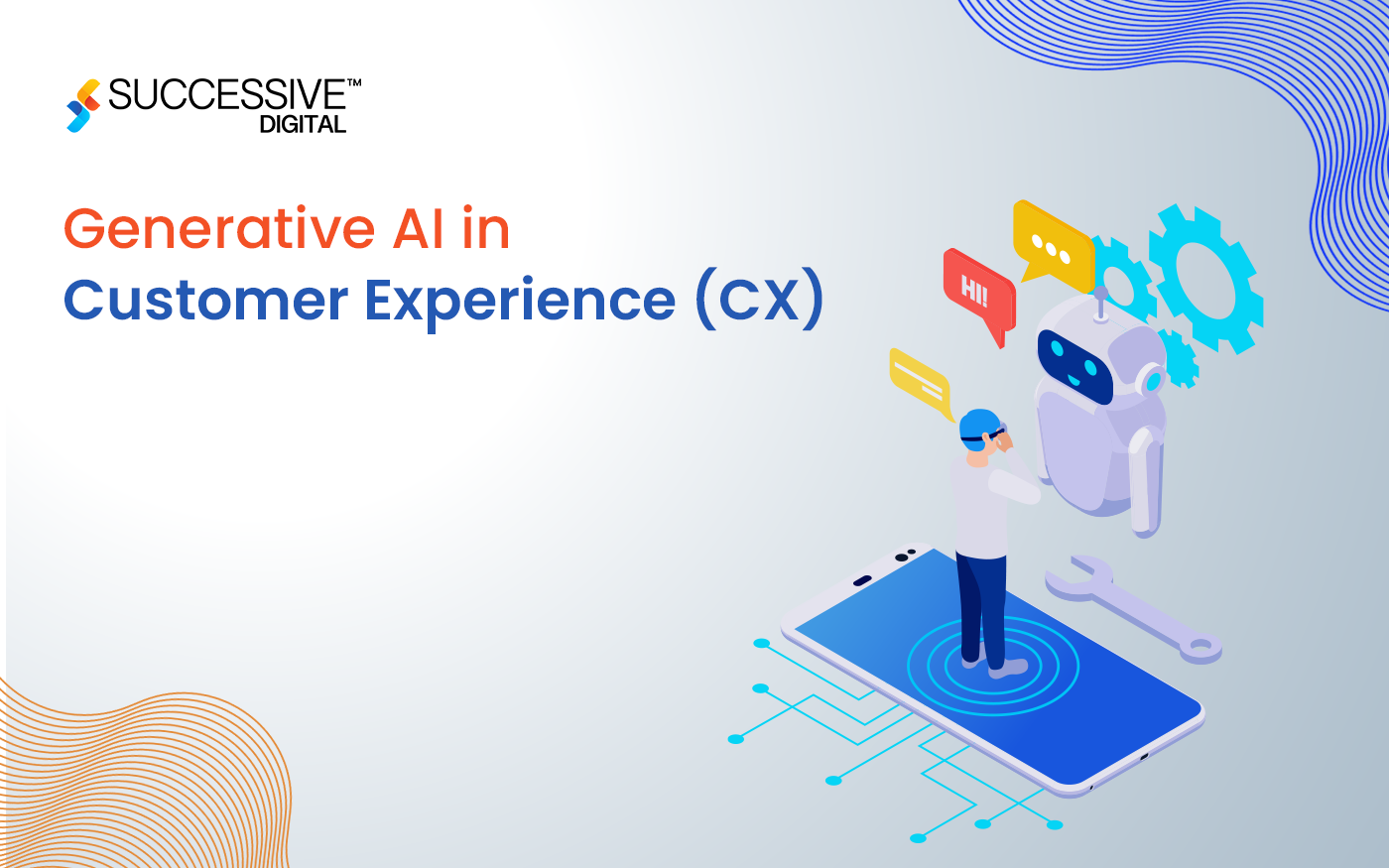The initial set of KYC standards was implemented in the early 1990s to limit the risk of money laundering. Following rising geopolitical tensions—and the assaults on US soil on September 11th, 2001—more comprehensive KYC protocols were implemented under the Patriot Act. FINRA Rule 2090 now clearly states the expectations for KYC compliance, helping standardize the process across institutions.
When it comes to maintaining a smooth and compliant Know Your Customer (KYC) process, a lengthy onboarding process, suddenly rising fees from your identity verification vendor, or issues with data storage and reporting are just a small part of the process. That is why many businesses in various industries suffer KYC issues, wasting time and resources on the wrong vendors.
However, with the introduction of modern technology like generative AI and solutions like AI document analyzer, every business operation has been impacted, and so has the customer onboarding process. Enterprises can hire AI strategy consulting company to utilize these modern tools and technologies successfully. This blog covers the five significant challenges in the customer onboarding process, particularly in e-KYC, and how artificial intelligence addresses them.
Five Major KYC Challenges & How AI Mitigates It?
Know your customers ( KYC) is a mandatory process that needs to be followed by every industry that stores and saves customers’ personal information. One of the most prominent industries is the finance or financial firms. We will take the example of fintech industries in this blog post as to how AI enhances KYC processing in every step of customer onboarding. Let’s understand enterprises’ key challenges and how they can eradicate them with AI-powered solutions.
1. Manual Document Verification
Manual document verification is time-consuming, particularly for fintech companies onboarding many consumers. Verifying customer names, addresses, and other critical papers necessitates manual examination, which is often slow and error-prone. To be accurate, employees must filter through various document formats, languages, and layouts, frequently resulting in delays and increased operational costs. Furthermore, the repetitious nature of this work causes tiredness, raising the risk of oversight or misjudgment.
How Does Artificial Intelligence Help?
Generative AI powered tools like AI Document Analyzer automates customer information extraction, classification, and validation, reducing the need for manual document verification. AI-powered systems use tools to detect document layouts and extract key information. Optical Character Recognition (OCR) software, such as PaddleOCR, can extract text from scanned photos in multiple languages. Generative AI models, such as OpenAI’s GPT, examine extracted data to discover inconsistencies or gaps in information and provide corrections.
AI minimizes human intervention by automating repetitive activities, resulting in faster and more accurate verification. It can handle many documents simultaneously, lowering operational expenses and reducing the possibility of human error. Furthermore, AI-generated scores identify unclear sectors for human assessment, achieving a balance of automation and monitoring.
2. Errors & Data Inconsistencies
Data discrepancies are a key roadblock in the KYC process. Fintech firms frequently receive documents containing incomplete, obsolete, or mismatched information, such as differences in names, addresses, or identity numbers. These inaccuracies can lead to application rejections or follow-ups, which frustrates the organization and the client. Furthermore, incorporating contradictory data into backend systems can cause operational problems. Traditional manual approaches are ineffective at identifying and reconciling such differences, leaving gaps in customer information that can lead to increased compliance concerns.
How Does Artificial Intelligence Help?
AI Document Analyzer powered by gen AI improves data accuracy by detecting and resolving errors in real-time. After extracting the data, an LLM (Large Language Model) checks the extracted text for errors, formatting inconsistencies, and missing fields. These models cross-check client details against existing databases or regulatory standards to ensure alignment. AI algorithms also organize the data in a consistent format for backend integration.
Fintech businesses can minimize typical errors by removing manual data entry and exploiting AI’s pattern recognition capacity. The result is a streamlined onboarding process in which customer records are accurate, complete, and ready for immediate use, decreasing the need for follow-ups and increasing customer satisfaction.
3. Regulatory Compliance & Audit Readiness
The financial sector is governed by strict regulatory frameworks that require precise and fast KYC processes—non-compliance results in significant fines, reputational damage, and even operational shutdowns. Meeting several global regulations—such as GDPR, AML (Anti-Money Laundering), and CFT (Combating the Financing of Terrorism)—complicates the onboarding process. Manual processes frequently fail to achieve full compliance, and a lack of documentation or control makes audit readiness difficult. Fintech companies require a methodical way to keep up-to-date and verified records for each consumer.
How Does Artificial Intelligence Help?
In AI document analyzer; generative AI improves compliance operations by automating the assessment and organizing of KYC data to meet regulatory criteria. AI systems are taught to recognize regulatory-specific standards (such as GDPR or AML) and ensure that consumer data follows these guidelines. Generative AI generates structured, auditable outputs (such as JSON forms) that can be tracked and traced. It also logs each stage of the KYC procedure, providing a visible record for audits.
AI performs real-time compliance checks, ensuring no data breaches or regulatory failures occur. It also speeds up audit preparation by keeping thorough digital records, reducing the risks associated with manual documentation gaps.
4. Detection of Fraudulent Documents
Fraudulent documents are a significant risk for fintech companies since forgeries can readily circumvent traditional verification procedures. Criminals employ fake ids, changed documents, or stolen identities to exploit financial services, resulting in economic loss and compliance violations. Detecting irregularities in document patterns, such as unusual fonts, mismatched seals, or modified photos, necessitates specialized tools and experience, which manual methods lack. Enterprises without comprehensive fraud detection systems face significant risks when onboarding high-risk or non-compliant customers.
How Does Artificial Intelligence Help?
AI Document Analyzer improves fraud detection by detecting minor differences in document structures and patterns. Advanced AI models can detect objects and regions within documents and identify irregularities, such as altered seals or misaligned typefaces. Generative AI compares document metadata to previously created templates or examples to detect differences. LLMs examine the extracted data for contextual abnormalities that indicate fabrication.
Fraudulent documents are identified in real-time, lowering onboarding risks. AI’s capacity to evaluate vast datasets and find micro-patterns guarantees that even most fabricated forgeries are discovered, protecting businesses from financial and compliance risks.
Also Read: The Role of AI in Redefining Customer Interactions
5. Managing Large Volumes of Documents
As fintech companies grow, they have difficulty processing increasing KYC documentation. Each customer provides a unique set of documents that must be authenticated and securely preserved. Manual processes cannot adequately handle such volume spikes, resulting in bottlenecks in onboarding workflows. The extra workload also causes delays, lowering consumer satisfaction and undermining trust. Furthermore, securing and managing these documents to ensure privacy and compliance adds another layer of complexity.
Each problem emphasizes the importance of automation, accuracy, and scalability in KYC processes to provide seamless customer onboarding while following regulatory norms.
How Does Artificial Intelligence Help?
These AI document analyzers facilitates scalability by automating bulk document processing and data management. Fintech companies use AI-powered systems to process hundreds or thousands of documents simultaneously. These systems rely on parallel processing, while AI tools can provide user-friendly interfaces for document uploading, tracking, and management. Generative AI organizes, categorizes, and combines the processed data into safe storage systems.
Automation removes bottlenecks from onboarding routines, ensuring volume fluctuations do not interrupt operations. Furthermore, safe AI frameworks assure adherence to privacy rules, preserving consumer confidence while scaling operations efficiently.
Artificial intelligence is taking over; it is doing everything that was just imagined once. From fintech to healthcare, every industry is having an ever-lasting impression of AI. Let’s explore how we helped a leading banking business to improve its business operations with an AI-powered Document Analyzer.
Case Study- AI- Document Analyzer
A leading banking business in UAE was looking for a solution that is capable of scanning documents, extracting critical fields, and presenting data in a structured format. The solution needed to:
- Identify specific attributes in documents and extract corresponding data.
- Display confidence scores, helping users pinpoint fields that may require manual rechecks.
- Handle a variety of document types, including invoices, payslips, and bills, with high accuracy and efficiency.
They envisioned a solution that would streamline data extraction workflows, enabling seamless integration with downstream systems like CRMs and databases.
Successive Digital delivered a Gen AI powered solution for document analysis. The solution included a strong data extraction pipeline which was built using a well-integrated tech stack. Python served as the core programming language, orchestrating image preprocessing, OCR, object detection, and LLM integration. YOLOv8 was deployed to identify Regions of Interest (ROIs) in the documents, including tables, headers, footers, and signatures. Custom datasets were used to train YOLOv8 for high accuracy and real-time processing, enabling seamless high-volume document handling. PaddleOCR extracted text from identified ROIs, offering multi-lingual support and adaptability for complex layouts.
Image preprocessing improved OCR accuracy through techniques like noise removal and resizing, implemented using OpenCV and Python-based tools. OpenAI’s GPT Models were fine-tuned for context-aware data extraction, such as payment amounts and due dates. Extracted text was cleaned and normalized using libraries like spaCy and NLTK, ensuring structured output in JSON format. A Streamlit-based UI provided users with a simple interface to upload documents and view results. Extracted data was output as JSON and integrated into downstream systems through RESTful APIs built with FastAPI/Flask. Confidence scores were displayed alongside extracted data for easy verification.
This collaboration underscored Successive Digital’s expertise in Generative AI-powered solutions, offering a scalable, accurate, and user-friendly Document Analyzer tailored to specific business requirements.
Why do you Need a Gen AI Consulting Company for your Enterprise?
Integrating Generative AI into your organization entails more than just using advanced technology; it is about unlocking transformative value across your operations. Gen AI consulting company has extensive experience to help you find the most significant use cases, customize AI models to line with your business objectives, and enable seamless implementation throughout your existing ecosystem. A consultancy partner bridges the gap between vision and execution by establishing strong data pipelines and fine-tuning AI models while addressing crucial concerns such as privacy, compliance, and scalability. You can decrease implementation risks, accelerate time-to-market, and empower your teams with solutions designed to produce demonstrable results by utilizing their experience. Here’s what a Gen AI consulting company can do for you:
- Tailors AI models to meet your specific goals and operational needs.
- It helps pinpoint areas where Generative AI can drive the most value for your business.
- Builds and optimizes robust data pipelines and fine-tunes models for accuracy and efficiency.
- Addresses critical concerns like data security, privacy, and regulatory compliance.
- Ensures smooth deployment into your existing IT and operational ecosystem.
- Reduces the risk of implementation challenges with proven methodologies and expertise.
- Speeds up time-to-market for AI initiatives, enabling faster realization of benefits.
- Empower your enterprise with scalable solutions designed for sustained growth and innovation.
Conclusion
With such modern technologies becoming an inseparable part of our lives and customer expectations being higher than ever, utilizing AI for KYC automations is a necessity that goes beyond just following the AI trends. AI-powered document analyzer offers speed and scalability and helps optimize costs that manual processes can never match. By integrating AI, modern businesses can stay compliant and deliver an improved customer experience. Are you also looking to transition to existing KYC processes with AI-powered solutions? Remember that the benefits of artificial intelligence are limitless. But to utilize AI and build robust solutions for your specific business needs, you must hire a Generative AI consulting company.












